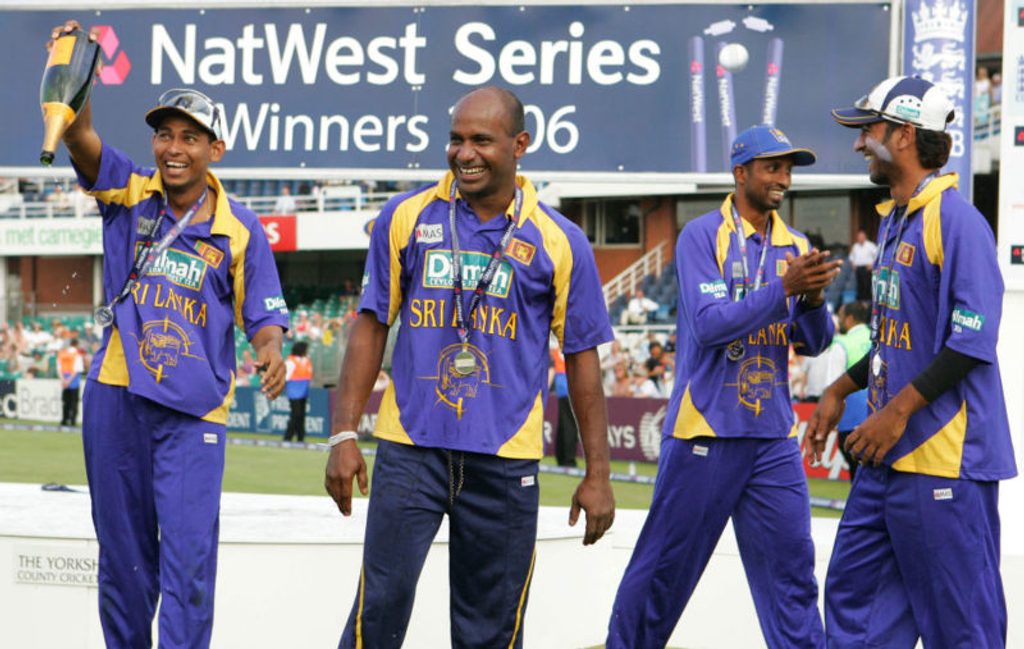
Sanath Jayasuriya has been banned from cricket for two years for two breaches of the International Cricket Council’s Anti-Corruption Code.
The former Sri Lanka captain and World Cup-winner, who was charged in October, admitted failing to co-operate with a wider investigation into corruption in Sri Lankan cricket by “concealing, tampering with or destroying evidence”, as stated in Article 2.4.7.
The 49-year-old retired in 2012 after a decorated playing career. He spearheaded his nation to their first World Cup trophy by claiming the player of the tournament award in the 1996 tournament, cementing himself in Sri Lankan cricket folklore.
[caption id=”attachment_84947″ align=”alignnone” width=”800″] Jayasuriya enjoyed a 22-year long international career[/caption]
Jayasuriya enjoyed a 22-year long international career[/caption]
Jayasuriya scored 21 centuries and took 323 wickets in 445 one-day internationals, while his 110 Test matches yielded an average of 40.07. In January 2013, Sri Lanka Cricket appointed their former batting all-rounder as the chairman of cricket selection committee, and he also had a spell as a government minister.
[breakout id=”0″][/breakout]
“This conviction under the code demonstrates the importance of participants in cricket co-operating with investigations,” said Alex Marshall, general manager of the ICC anti-corruption unit.
“Compelling participants to co-operate under the code is a vital weapon in our efforts to rid our sport of corruptors. These rules are essential to maintain the integrity of our sport.”
[breakout id=”1″][/breakout]
In the wake of his ICC charge in October, the former Sri Lanka captain insisted he had acted with “integrity and transparency” throughout the investigation, while former England captain Nasser Hussain opined that Jayasuriya’s charge was “just the tip of the iceberg” for corruption in cricket.
Jayasuriya retired from international cricket in 2011, but continued playing Twenty20 matches until 2012. The opening batsman is credited, by some, for having revolutionised ODI batsmanship with his explosive batting with Romesh Kaluwitharana in the 1996 World Cup.







